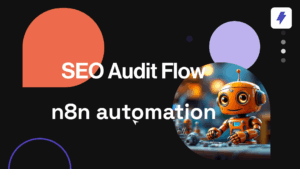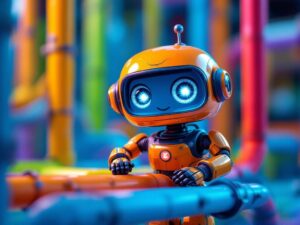In the ever-evolving landscape of technology, the integration of artificial intelligence (AI) into various aspects of our lives has become more pronounced. One notable development in this realm is the emergence of ChatGPT jobs, marking a significant shift in how humans and AI collaborate. This blog explores the rise of ChatGPT jobs, their impact on different industries, and the challenges and opportunities they present.
Table of Contents
ToggleI. Understanding ChatGPT
Before delving into the job landscape, it’s crucial to understand what ChatGPT is. ChatGPT is a language model developed by OpenAI, part of the larger family of models based on the GPT (Generative Pre-trained Transformer) architecture. It excels at generating human-like text and engaging in natural language conversations, making it a powerful tool for various applications.
A. How ChatGPT Works
ChatGPT is trained on a diverse range of internet text, learning to generate coherent and contextually relevant responses based on the input it receives. Through unsupervised learning, it gains an understanding of language patterns, semantics, and contextual cues, allowing it to respond to user prompts in a way that simulates human conversation.
B. Capabilities and Limitations
While ChatGPT showcases remarkable language generation abilities, it’s not without limitations. It may produce incorrect or biased responses, and its lack of a built-in memory system means it may not maintain context over long conversations. However, continuous advancements in AI research aim to address these limitations and improve the overall performance of models like ChatGPT.
II. The Evolution of ChatGPT Jobs
A. Customer Support and Chatbots
One of the earliest and most prominent applications of ChatGPT in the job market is customer support and chatbots. Many businesses are integrating ChatGPT-powered systems to handle customer inquiries, provide information, and offer support. This not only enhances efficiency but also allows human customer support agents to focus on more complex issues that require emotional intelligence and nuanced understanding.
B. Content Creation
Content creation is another arena where ChatGPT is making its mark. From writing articles and blog posts to drafting marketing copy, ChatGPT can assist human writers by generating creative and contextually appropriate text. This collaboration between human writers and AI can significantly increase productivity and streamline content production processes.
If you’re looking to supercharge your content creation capabilities, don’t forget to check out Straico which is a multi-model AI offering multiple templates for Content Creation, Copywriting & Image Creation.
C. Programming and Coding Assistance
In the realm of software development, ChatGPT is proving to be a valuable ally for programmers. Developers can use ChatGPT to seek assistance in coding, troubleshoot issues, and even generate code snippets. This not only accelerates the development process but also serves as a learning tool for programmers, enabling them to grasp new concepts and coding patterns more effectively.
Check out this Code Wizard by Straico which is a template that helps generate custom code snippets based on code parameters like code type, language, framework, and desired functionality.
D. Language Translation and Interpretation
With its language understanding capabilities, ChatGPT is contributing to advancements in language translation and interpretation. Real-time translation services powered by ChatGPT can facilitate communication between individuals who speak different languages, breaking down language barriers and fostering global collaboration.
Straico offers multiple templates like language translation, grammar fixer, and text summarizer which help in language translation and interpretation.
III. Industries Embracing ChatGPT Jobs
A. Healthcare
In the healthcare industry, ChatGPT is being employed for tasks such as medical documentation, patient communication, and even preliminary diagnosis. By automating routine tasks, healthcare professionals can focus more on patient care, research, and complex medical decision-making.
B. Finance
Financial institutions are leveraging ChatGPT for customer interactions, fraud detection, and market analysis. ChatGPT-powered systems can engage with customers, providing information about transactions, account balances, and financial planning. Additionally, AI-driven analysis of market trends and financial data can aid in making informed investment decisions.
C. Education
The education sector is embracing ChatGPT for personalized learning experiences, automated grading, and tutoring. ChatGPT can adapt its responses to individual learning styles, providing students with tailored educational content. Moreover, it can assist teachers in grading assignments and addressing common queries, allowing them to focus on more intricate aspects of teaching.
D. E-commerce
In the world of e-commerce, ChatGPT is enhancing the customer shopping experience. Virtual shopping assistants powered by ChatGPT can help customers find products, answer queries, and provide personalized recommendations, replicating the in-store shopping experience in the digital realm.
IV. Challenges & Ethical Considerations of ChatGPT Jobs
A. Bias in AI
One of the significant challenges associated with ChatGPT jobs is the potential for bias in the generated content. Since the model is trained on data from the internet, which may contain biased information, it can inadvertently perpetuate and amplify existing biases. Ensuring ethical AI practices and addressing bias is crucial to prevent unintended consequences in various applications.
B. Job Displacement and Reskilling
The integration of ChatGPT in the workforce raises concerns about job displacement, particularly in roles that involve repetitive and routine tasks. However, it also opens up opportunities for reskilling the workforce. As certain tasks become automated, there is a growing need for individuals with skills in AI management, oversight, and collaboration.
C. Privacy and Security
The use of ChatGPT in customer interactions, especially in sensitive sectors like healthcare and finance, raises concerns about privacy and security. Organizations must implement robust measures to safeguard user data and ensure compliance with privacy regulations to build and maintain trust.
D. Explainability and Accountability
The opaque nature of AI models like ChatGPT poses challenges in terms of explainability. Understanding how the model arrives at specific conclusions or generates certain responses is crucial for accountability. Efforts to make AI systems more transparent and interpretable are essential to foster trust among users and stakeholders.
V. The Future of ChatGPT Jobs
A. Continued Advancements in AI Research
The future of ChatGPT jobs hinges on continuous advancements in AI research. Ongoing efforts to address limitations, enhance performance, and develop more sophisticated models will contribute to the widespread adoption of ChatGPT across diverse industries.
B. Human-AI Collaboration
Rather than replacing human workers, ChatGPT jobs signify a shift toward collaboration between humans and AI. The focus will likely be on leveraging AI to augment human capabilities, freeing up time for more creative and complex tasks that require emotional intelligence, critical thinking, and ethical decision-making.
C. Ethical AI Development
As the use of ChatGPT becomes more prevalent, the importance of ethical AI development cannot be overstated. Stricter guidelines, regulations, and industry standards are essential to ensure responsible and ethical deployment of AI technologies, addressing issues such as bias, privacy, and accountability.
ChatGPT Jobs Are Growing
ChatGPT jobs represent a transformative force in the workforce, reshaping how we approach tasks across various industries. As we navigate this evolving landscape, it is imperative to embrace the opportunities presented by ChatGPT while addressing the challenges it poses. By fostering ethical AI practices, prioritizing transparency, and promoting human-AI collaboration, we can harness the full potential of ChatGPT to create a future where technology enhances human capabilities and drives innovation.


